As conflicts rage and civilian casualties rise, calls to curb the flow of arms have largely gone unheeded. In Gaza, and now in Lebanon, Western governments face growing criticism for their continued support of Israel’s military efforts, even as they urge restraint to limit the human toll.
Amid this backdrop, the United States—Israel’s largest supplier of military aid, accounting for 69% of its arms imports, has sought to deflect criticism by highlighting China's backing of Vladimir Putin as Russia’s invasion of Ukraine nears its third year.
While the criticism directed at Beijing's support may have merit, it remains a contentious issue given Washington’s steadfast backing of Benjamin Netanyahu’s war, which has resulted in the deaths of more than 44,000 people in Gaza and another 2,500 in Lebanon. Just as the United States stands firmly behind Netanyahu, China continues to provide substantial support to Putin, who since 2022 can be held responsible for over 11,000 civilian deaths in Ukraine. However, efforts to justify either conflict by deflecting criticism are increasingly unconvincing – particularly when it comes from the US.
An analysis of customs data by the Carnegie Endowment think tank reveals that China exports over $300 million worth of dual-use items—goods that can serve both civilian and military purposes—to Russia each month. Although this figure has dipped from a peak of more than $600 million last December, Beijing remains one of the largest suppliers of these regulated products to Moscow, signaling a strategic alignment with Putin despite Western efforts to ostracise the Kremlin. In contrast, efforts to rein in Israel’s ongoing offensive in Gaza have been confined largely to rhetorical gestures, even as the widening conflict spills over into parts of Lebanon.
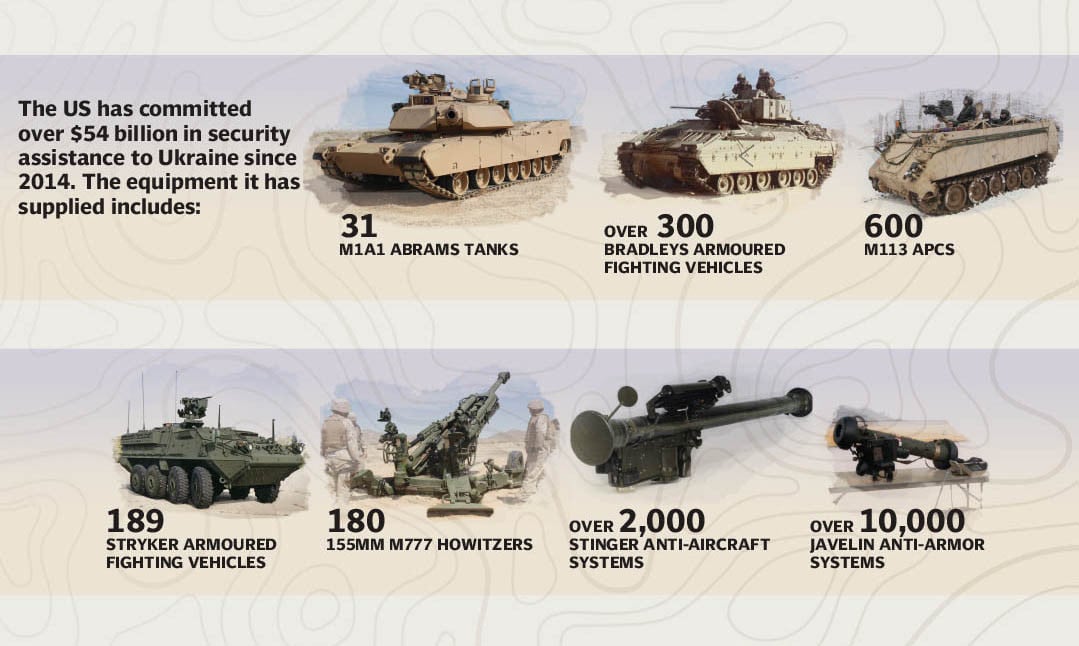
While China’s focus on dual-use components—rather than finished weapons—enables it to maintain plausible deniability, the US finds no such cover when its own military contributions to Israel are scrutinized.
Data from the Costs of War Project at Brown University’s Watson Institute for International and Public Affairs estimates Washington’s expenditure on Israel’s military actions and related regional operations at a minimum of $22.76 billion, a conservative figure that encompasses approved security assistance since the onset of the conflict in October last year. This amount includes the $17.9 billion in security aid that the US has sanctioned for Israeli operations in Gaza and beyond since the onset of hostilities—an amount surpassing any other year since US military aid to Israel began more than six decades ago. Nevertheless, the report underscores that this total only captures a fraction of America’s overall financial commitment during the current conflict.
If that weren’t enough, the Biden administration, which has firmly established itself as a staunch ally of Israel, recently supplied Prime Minister Netanyahu with an advanced missile defense system, accompanied by US military personnel to ensure its effective operation. The deployment of the Terminal High Altitude Area Defense system, or THAAD, occurred just weeks before Israel launched retaliatory strikes against Iran, following an attack in which Tehran fired approximately 180 ballistic missiles at Israel. According to a report from The New York Times citing US military officials, the THAAD battery—a mobile defense system—is designed to provide an additional layer of protection, safeguarding Israeli cities, troops, and installations from short- and intermediate-range ballistic missiles in the wake of its retaliatory actions against Iran.
With this information now in the public eye, Washington’s recent criticism of Beijing appears not only hollow but also motivated by objectives beyond simply restraining Russia’s war efforts. Despite the lack of substantial evidence that China has supplied weapons systems to Russia for its military campaign in Ukraine, the US has imposed sanctions on two China-based drone suppliers and their alleged Russian partners—marking the first time it has penalized Beijing for alleged arms deliveries to Moscow, a claim that China has firmly rejected.
This geopolitical maneuvering, however, comes at a time when the US military complex seems increasingly focused on stoking tensions with China over Taiwan, a deeply sensitive issue for Beijing. A recent report from the US Department of Defense reveals that, even as Washington imposed sanctions on Beijing, it is moving ahead with a potential foreign military sale to Taipei valued at $1.16 billion. In addition to equipment, which includes three Raytheon-manufactured systems and 123 missiles, the proposed sale calls for the deployment of roughly 26 US government officials and 34 contractor representatives to Taiwan for an extended period to provide technical support and training to local military personnel. Despite being limited in number, the positioning of Washington’s forces and the timing of its move are likely to irritate the strategists in Beijing.
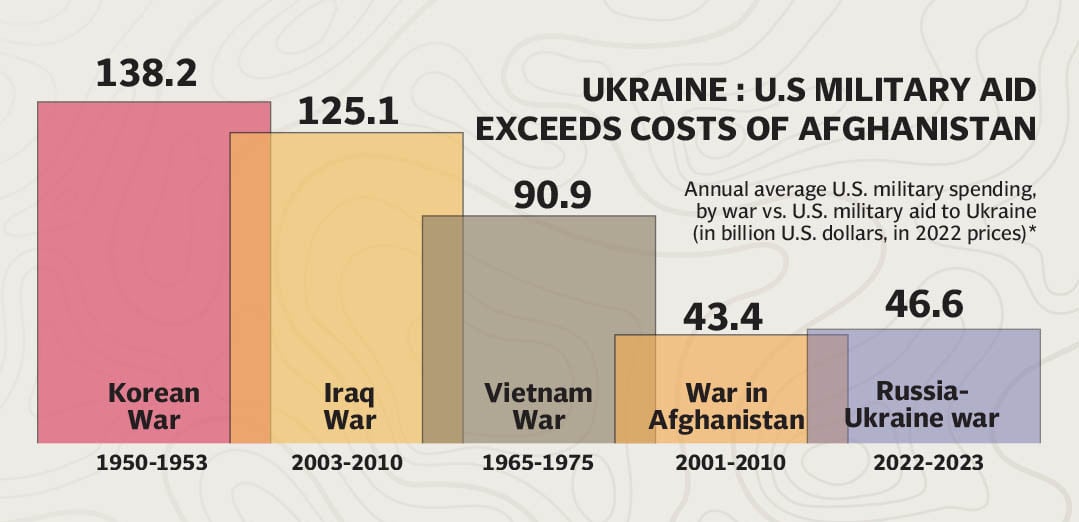
The suppliers
While the United States accounts for the lion’s share of weapons and equipment used by Israel in its offensive against Gaza, other Western allies, despite their double talk, have also continued to provide ammunition in various ways, without ever facing the kind of swift sanctions recently imposed on China.
In this context, the moral implications of military support take center stage — war, regardless of its location, cannot be justified. Russia’s invasion and the killing of Ukrainians cannot be distinguished from the indiscriminate deaths of Palestinians at the hands of Israel’s military machine. Most observers, despite consuming coverage through a largely biased Western media lens, acknowledge that in three years, Russia has yet to reach the scale of brutality displayed by Israel.
Much of this bloodshed would not have been possible without the unwavering support Netanyahu has received, in stark contrast to the early and sweeping sanctions imposed on Putin. Even now, while there is ongoing discussion about halting military supplies to Israel, tangible action—or ‘walking the talk’—remains conspicuously absent.

A recent letter from a group of US physicians to President Biden warned the White House about the humanitarian catastrophe in Gaza, where, according to their estimates, 62,413 people have died of starvation alone. Yet, Washington has shown little interest in attaching meaningful conditions to the flow of arms that have been used to bomb unarmed civilians. In fact, according to a report by the Foundation for Defense of Democracies, the volume of arms shipments to Israel has been so substantial that a senior Pentagon official admitted the Department of Defense sometimes struggled to find enough cargo aircraft to deliver them.
But even as Biden faces mounting pressure during the final months of his presidency, he will continue to supply arms to Israel under an Obama-era $38 billion aid agreement that runs until 2026, as reported by The New York Times. Israel's purchases under this deal include the very bombs dropped on Gaza, which have caused extensive destruction, leveling large parts of the enclave. In Washington, lawmakers and the media practitioners have questioned the lack of transparency surrounding these supplies to Israel. Unlike the regular fact sheets listing military supplies sent to Ukraine, the Defense Department has published only a limited number of news releases detailing its support to Israel.
Similar arms deliveries have sparked debate in Europe, which has provided substantial support to Israel since the Hamas attacks last year. Governments are now under increasing pressure to curtail their supplies.
According to a report by the Stockholm International Peace Research Institute (SIPRI) on international arms transfers, Germany has emerged as the second-largest supplier, accounting for 30%, followed by Italy at 0.9%. Other smaller contributors include the UK, France, and Spain.
Over the weekend, French President Emmanuel Macron criticized European leaders calling for a ceasefire in Gaza while continuing to supply lethal weapons to Israel, accusing them of incoherence. This drew a sharp response from Israeli Prime Minister Benjamin Netanyahu, who often dismisses any opposition to his actions in Gaza as anti-Semitic.
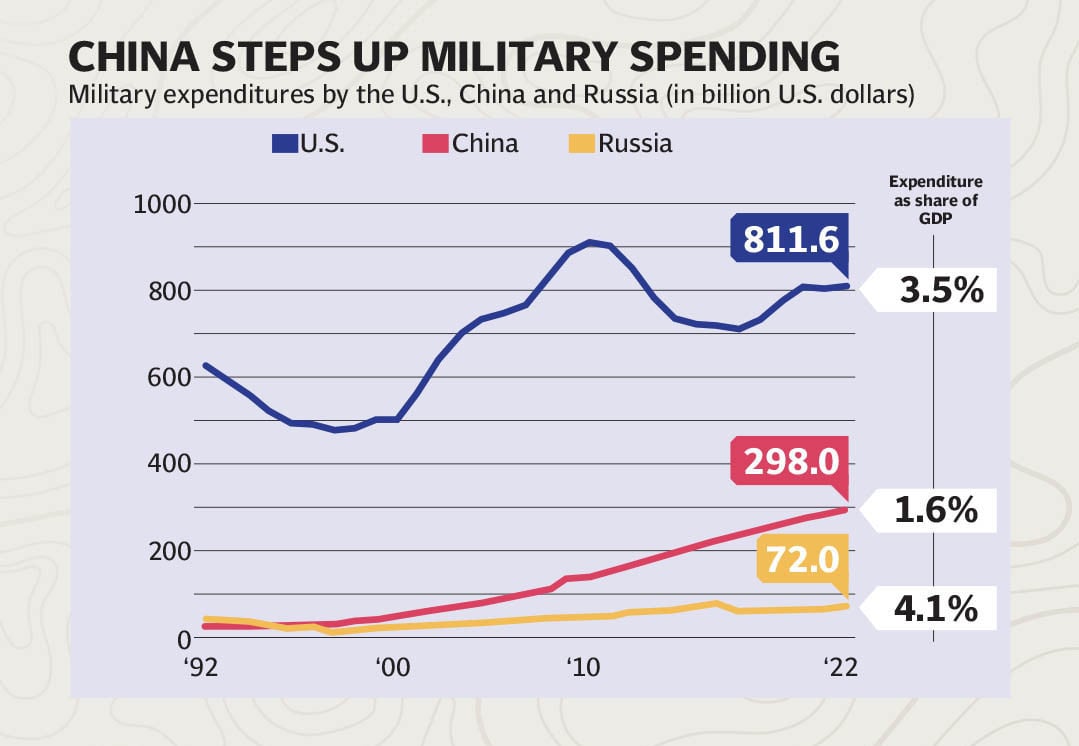
Since last year, European states have largely supported Israel’s right to self-defense. However, growing concerns that Western-supplied weapons may be contributing to war crimes and civilian casualties in the besieged Gaza Strip have intensified calls for an arms embargo. Yet, concrete measures remain absent.
Despite mounting criticism, Chancellor Olaf Scholz recently acknowledged that the country had not halted its supplies, confirming that additional deliveries are planned “in the near future.” This unwavering commitment stems from Germany’s long-standing policy of supporting Israeli security, rooted in historical responsibility due to the Nazi Holocaust against Jews during World War II. As a result, Berlin's foreign policy has often prioritized ensuring Israel’s security, even amid rising international scrutiny over its military actions in Gaza.
According to SIPRI, Italian exports to Israel reportedly included helicopters and naval artillery. Despite government assurances to halt exports under a law prohibiting arms sales to countries engaged in war or violating human rights, €2.1 million worth of exports were approved between October and December 2023. However, in a parliamentary address earlier this year, Defence Minister Guido Crosetto claimed that Italy had honored existing contracts only after a case-by-case review to ensure that the materials in question were not intended for use against civilians.
Media reports from the UK reveal that, since the Labour government took office in July, Foreign Minister David Lammy has suspended only 30 out of 350 licences for military equipment bound for Israel. The suspensions predominantly targeted specific components for drones and F-35 fighter jets. However, an investigation by Al Jazeera uncovered that the UK, alongside the US, has maintained a crucial air bridge that has significantly contributed to Israel's sustained military campaign in Gaza.
Open-source flight data highlights the extensive involvement of both countries, showing they jointly conducted 6,000 flights to transport arms and critical supplies. Out of 16,000 reconnaissance flights, Israel executed just 20%, while nearly half were undertaken by the UK using its Shadow R1 surveillance aircraft. These missions provided essential intelligence on ground movements within Gaza and included over 600 flights that delivered targeting data to Israel.
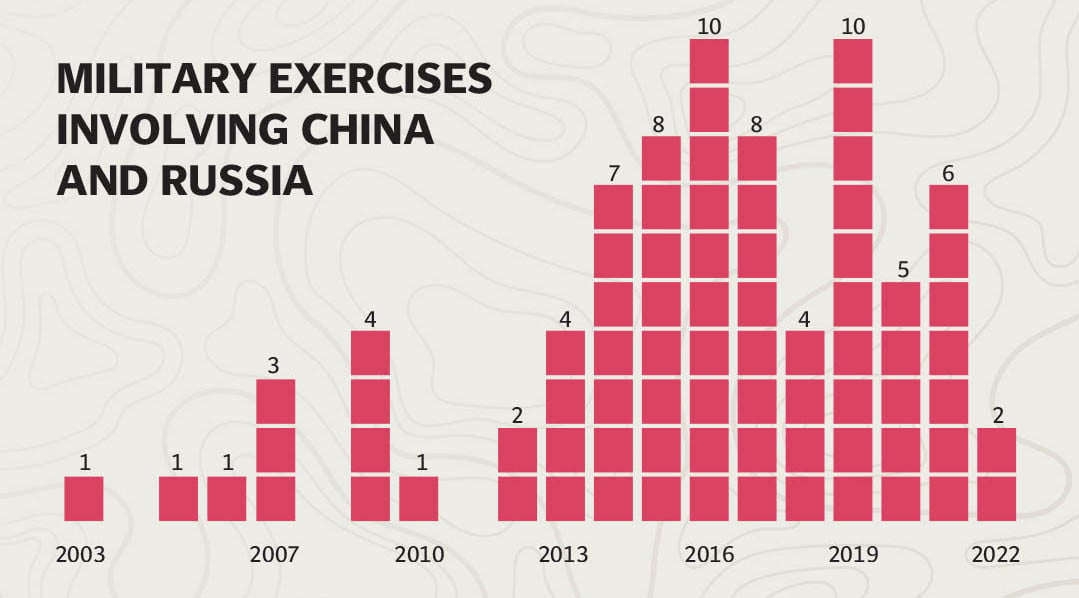
The investigation further revealed that over 1,200 flights last year were solely dedicated to weapons deliveries, with bases in the UK, Germany, Italy, and Cyprus playing a key role. Al Jazeera's findings underscore how this air bridge, along with refuelling support provided by both the UK and the US, has enabled Israel to sustain its intense assault on Gaza and now Lebanon.
Spain stands out as the only European supplier that has
not only scaled back its arms sales to Israel but has also emerged as a vocal critic of Netanyahu’s aggressive bombardment of Gaza. In doing so, it has taken a firm stance against what it perceives as Western double standards regarding the Gaza conflict. At NATO’s 75th anniversary summit in Washington earlier this year, Spanish Prime Minister Pedro Sánchez delivered one of the most pointed critiques of the alliance’s position. He stated, “If we are telling our people that we are supporting Ukraine because we are defending international law, this is the same commitment we must show towards Gaza.” This remark, which drew Netanyahu’s ire, underscores Madrid’s growing frustration with the West’s inconsistent approach to global conflicts. Beyond advocating for a reduction in arms supplies, Spain has called for a consistent application of international law in both the Ukraine and Gaza conflicts—a stance that may not garner unanimous support among other European nations.'
In Belgium, where arms export policy is managed at the regional level, local authorities have placed restrictions on weapons sales to Israel, while the federal government has been lobbying for an EU-wide embargo.
Meanwhile, in the Netherlands, a court ruling in February mandated a halt to the direct supply of F-35 fighter jet components to Israel, citing the clear risk of facilitating serious violations of international humanitarian law. However, the ruling left a loophole: parts could still be shipped to countries like the United States, which could then transfer them to Israel, according to the BBC.
Similarly, Denmark, a contributor to the F-35 programme, is currently contesting a legal challenge led by several rights groups, including Amnesty International, aimed at halting arms sales to Israel.
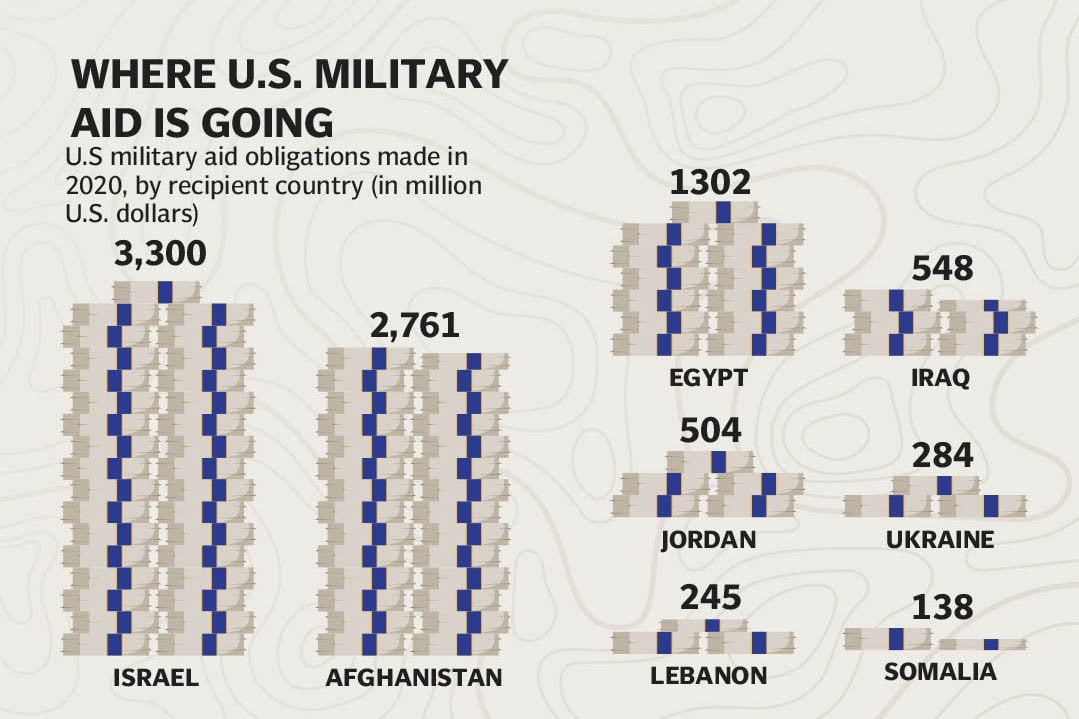
What needs to be done?
If Washington is genuinely committed to achieving peace in Gaza, it must reconsider its supply of weapons to Israel or, at the very least, impose conditions on those supplies. As millions in the enclave face starvation due to Israeli policies, the Biden administration has inexplicably granted Israeli Prime Minister Benjamin Netanyahu a generous 30-day window to implement what the White House describes as 'significant improvements' to the humanitarian situation in Gaza or risk jeopardising military aid. Meanwhile, civilians in Gaza continue to suffer under Israeli bombardment — facilitated by US-supplied weapons.
In March, the Biden administration authorised the transfer of 1,800 MK84 2,000-pound bombs and 500 MK82 500-pound bombs to Israel, as reported by The Washington Post. The 2,000-pound bombs have been linked to previous mass-casualty incidents during Israel's military campaigns in Gaza. Similarly in April, coinciding with Israeli airstrikes that claimed the lives of seven aid workers from World Central Kitchen, the State Department approved the transfer of over 1,000 MK82 bombs, more than 1,000 small-diameter bombs, and fuses for MK80 bombs. With all this evidence in mind, the claim that the U.S. is genuinely trying to limit casualties while still supplying arms may amount to nothing more than lip service — a half-hearted effort to address humanitarian suffering.
When Biden, the soon-to-be former president, declares, “Israel must do everything in its power, as difficult as it is, to protect innocent civilians,” his words ring hollow unless accompanied by conditions on the very weaponry that contributes to civilian harm.
Given the staggering death toll, it is difficult to justify the Biden administration's continued support for Israel's right to inflict civilian casualties in the name of self-defence. Perhaps it is time for President Biden to reflect on Ernest Hemingway’s caution: "Never think that war, no matter how necessary, nor how justified, is not a crime."
